Posted on 1/31/2022
.jpeg)
Most people think that automotive glass tinting is just a stylish add-on, but it offers tons of benefits beyond darkening your windows. If you want added protection and safety for your vehicle, then glass tinting might be exactly what you're looking for. Below are the top 4 benefits of having tinted windows on your car: Block Out Damaging UV Rays We all know that constant direct exposure to sunlight has adverse effects, so why aren't people more concerned about it when driving? Besides causing discomfort, the UV rays can cause burns, premature skin aging, and other skin conditions. Luckily, auto glass tinting can block out up to 99% of the harmful UV rays, so you and your loved ones stay protected on the road. Keeps Your Car Cool Tinted windows can make the temperature in your car more bearable on those scorching summer days. Furthermore, you won't have to worry about blasting your AC. Protects Upholstery Another advantage of having tinted glass on your car is that it ... read more
Posted on 12/22/2021

Over the years, technology has made life easier, especially when driving. Power steering, in particular, has made driving simple and even fun. Initially, the power steering system relied on hydraulic pumps that moved fluid towards the wheel for easy navigation. With electrical systems in use today, power steering is now common and affordable. It has also made detecting problems quick through a warning light on your vehicle's dashboard. The power steering warning light is recognizable on the dashboard since it's either orange, yellow, or a red steering wheel with an exclamation mark on its side. An illuminated EPS initial appears instead for the electrical power steering system but indicates the same message. The warning light coming on is bound to make you worried because it is accompanied by difficulties in steering, which is dangerous. What Does the Power Steering Warning Light Indicate? If your car relies on hydraulic power steering, this warning light signals a low fluid ... read more
Posted on 12/14/2021

Get your windshield wipers ready, winter has arrived a week early in San Diego County! A super-charged storm producing near-hurricane force winds and drenching rains has arrived. Pulled into California by a cold subtropics storm, Meteorologists call this column of moisture an atmospheric river—and it’s packing a punch! The torrential downpour brought power outages, flooding, and major traffic delays to San Diego making driving conditions tough. At times like this, you need to be able to rely on your windshield wipers to make your holiday driving safe. Is your vehicle ready for the rain? Replace your windshield wipers for free during the entire month of December*! It's our gift to our loyal customers during this holiday season. If you’re like most of us who live in sunny San Diego, we don’t think about windshield wipers until it rains. But did you know that heat, lack of ... read more
Posted on 11/29/2021
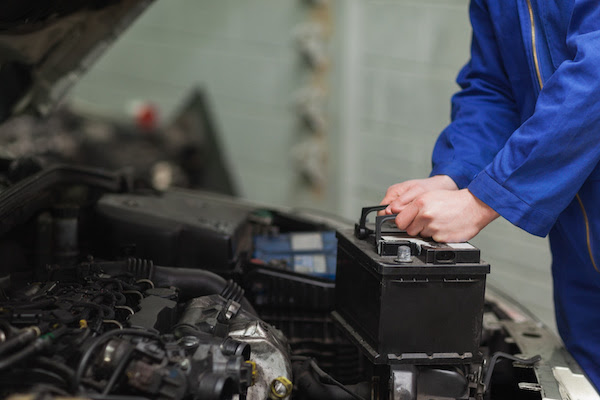
You might think all car batteries are created equal, but they're not. You have to consider the size, features, power, and more when choosing one. The three main types of car batteries are starting, lighting, ignition (SLI), lithium-ion, wet-cell (or flooded), and lead-acid batteries. Selecting the right battery for your vehicle is imperative to your vehicle's performance. If you are not sure how to pick out your new car battery, you can ask one of our certified technicians for advice. With the rising trend in hybrid and electric vehicles, more cars on the road rely on their battery more than ever. Moreover, manufacturers continue to add innovative technology-driven accessories that require electrical power. With all that being said, you need a dependable battery. Here are some tips on how to choose the correct battery for your car: Go through your veh ... read more
Posted on 10/21/2021
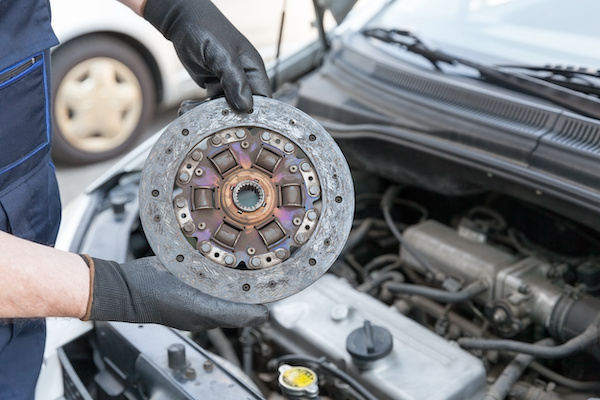
The clutch is an integral part of both automatic and manual transmissions that regulate how the power or torque is distributed. It controls the amount of energy that is propagated among the four wheels. You may not spend a lot of time as a vehicle owner worrying about the clutch, but it's essential to know when it is in trouble. Here are a few troubling signs of a bad clutch: Slipping Gears If your car always seems to be sliding out of gear, or if the vehicle feels like it lurches forward or jerks around, you may be in need of a clutch replacement. Another possible reason behind your slippy gear changes is an oil leak. Engine oil can make its way onto the clutch plate, which makes it slippery. A Burning Scent If you catch a burning paper smell, that's another symptom that the clutch requires replacement. The smell is most evident whenever you go in and out of traffic and when the clutch is being used. In severe cases, the foul odor can be acc ... read more
Posted on 9/27/2021
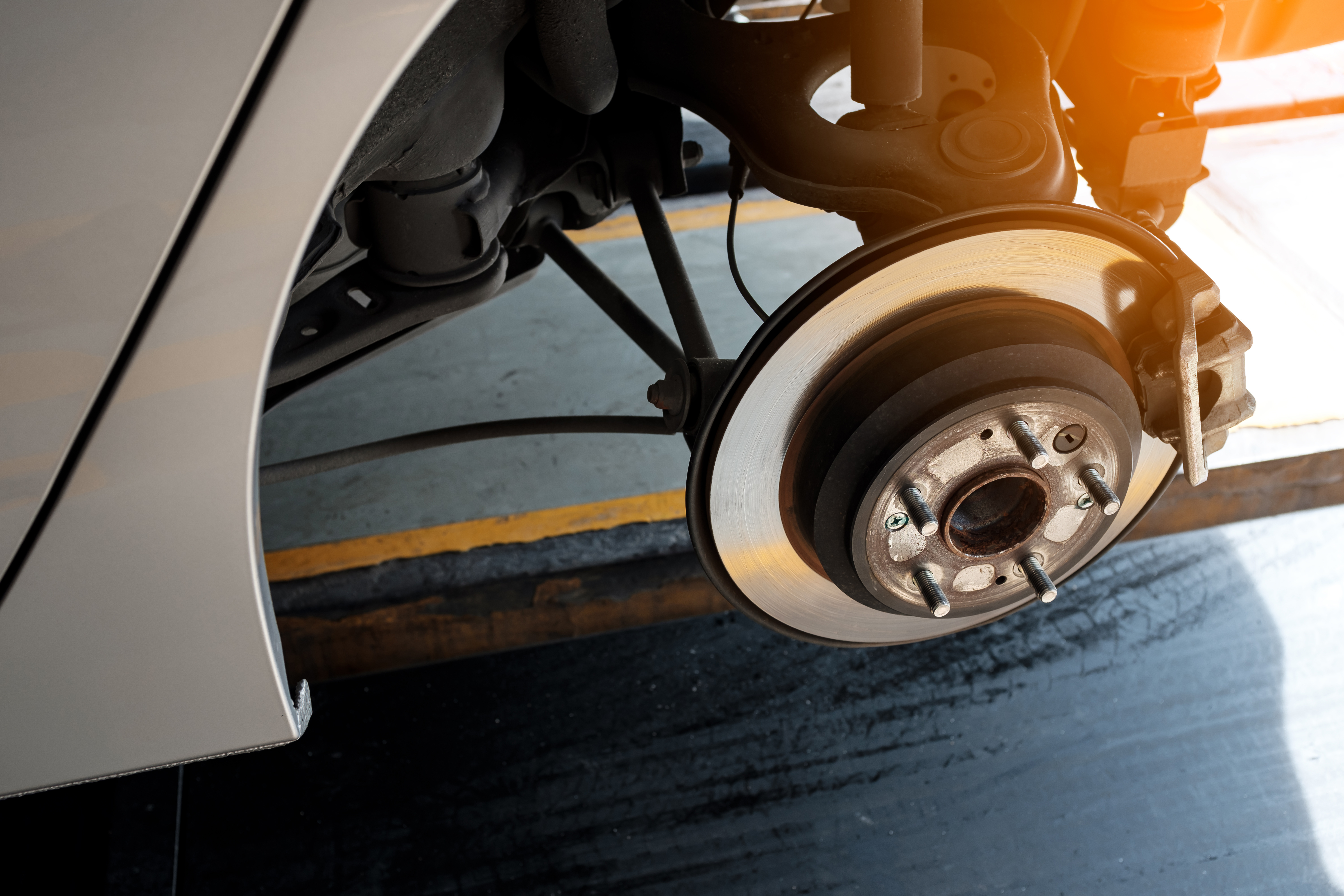
What Are Rotors? Rotors, working in conjunction with brake pads and calipers, are an essential part of your brake system that causes your car to slow down and/or stop. They are the circular metal piece that the brake pads come into contact with to control your wheels and stop them from spinning. They are often overlooked, but they are just as crucial as brake pads and any other brake component required for decelerating. What Could Go Wrong with Rotors? It doesn't take a scientist to conclude that heat is not a friend of metal. The intense heat from the friction of your brake system can cause warping and wear and tear on your rotors. Experts suggest that you replace your rotors every 30,000 - 70,000 miles, depending on usage. Rotor and brake pad replacement usually go hand in hand since the two parts are 'mated' and typically have the same wear pattern. Not replacing your rotors (and brake pads) when they wear down or get bent out of shape can cause your brake system to f ... read more
Posted on 8/23/2021
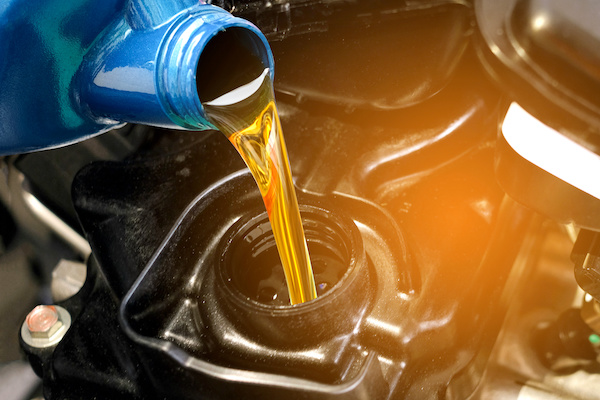
When it comes to your vehicle maintenance, engine oil is the most critical responsibility. Oil permits the various parts of your engine to seamlessly run without banging against each other. It also prevents your internal systems from reaching unbearable temperatures. However, numerous myths have invaded general knowledge when it comes to motor oil. We're here today to debunk the four most common myths about engine oil. Myth #1: You Should Always Replace Dark Oil The dark color is not the only sign that your oil is dirty or no longer functional. Some oils turn almost black as soon as the additives start cleaning your engine. Nevertheless, gritty or grainy textured oil is contaminated and should be replaced. Myth #2: Synthetic Oil Cause Leaks Synthetic oil was first created and used in 1970, and leaks were common when they first hit the market. Back then, synthetics could bring about the additional wear and tear to seals and gaskets in your vehicle's engine. In 2021, th ... read more
Posted on 7/21/2021
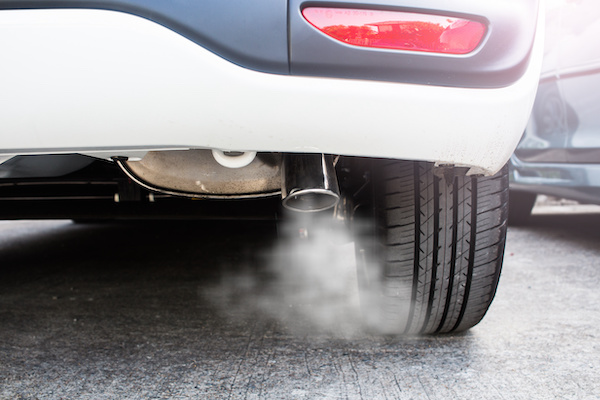
We realize that seeing white smoke coming from your vehicle's exhaust pipe can be a cause for concern. It is not a normal circumstance - so what does it signify? First of all, your vehicle's exhaust pipe is where your car's fumes are discharged. White smoke is not normal; however, it does not necessarily always point to a critical issue. Here are some of the common causes of white exhaust smoke that we've seen in our shop: Condensation If you notice the white smoke on a brisk, cold day and you only just started your vehicle, you may just be seeing steam from condensation. Wait it out and see if the smoke will clear quickly. Coolant Leak A coolant leak is a common cause of white exhaust smoke. If there is a coolant leak in your vehicle, you may also smell a sweet syrupy scent. Beware because low coolant can cause damage to your vehicle's engine and surrounding components. Take your car to an auto repair shop, so getting this taken care of ... read more
Posted on 7/12/2021
.jpeg)
A coolant plays a crucial role in your car's engine system. First, it is responsible for heat transfer across the system, maintaining optimum temperature, and protecting the engine from overheating or freezing. It also lubricates the constantly moving engine components ensuring your car runs smoothly and efficiently. So How Does an Engine Coolant Work? The coolant is a colored liquid mixed with water and held in a reservoir attached to the radiator. Every time the engine is active, the coolant moves across the engine system and then gets back to the radiator for cooling. Upon cooling, it escapes from the bottom of the radiator, after which it is supplied into the water pump. The water pump pushes the coolant to your vehicle's engine head and block where it controls the temperature. The antifreeze will then be pumped back into the radiator for cooling. Your engine's coolant system is quite intricate made of such components as: Radiator Hose Drives heat a ... read more
Posted on 6/23/2021
.png)
We’ve already seen extreme heat in San Diego this summer with record-setting temperatures in Borrego Springs, Campo, and Chula Vista according to the National Weather Service. Although we’re only a few days into summer, the forecast is for more hot days for San Diego County! That means your car's air-conditioning system is about to get a workout as the long summer days heat up. Your vehicle’s air conditioning is a sophisticated system that works hard to keep you cool. There are 5 main components of your air conditioning (A/C) including: Compressor - This is an essential component of a car’s A/C that pressurizes refrigerant to cool the air. The compressor senses temperature changes inside and outside your car while controlling the temperature output. Condenser - Located at the front of the radiator, the condenser receives air from the compressor and works to reduce the temperature/pre ... read more